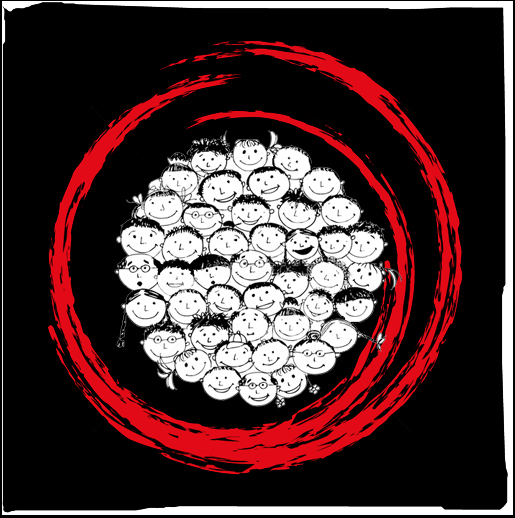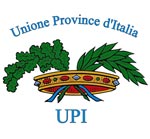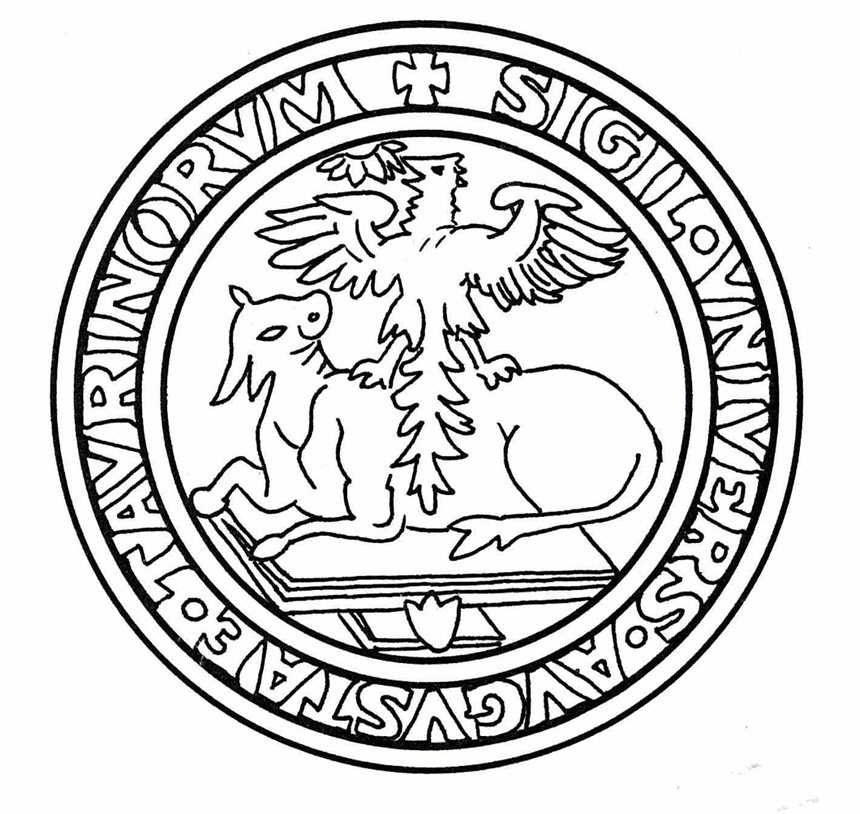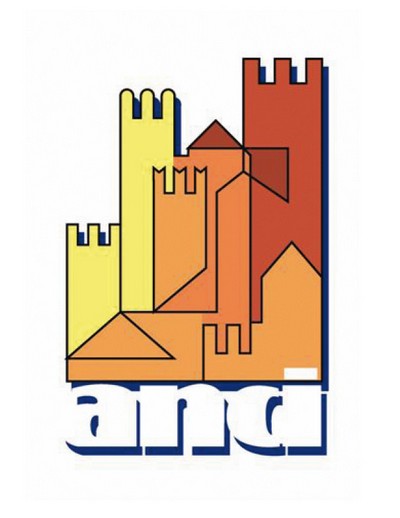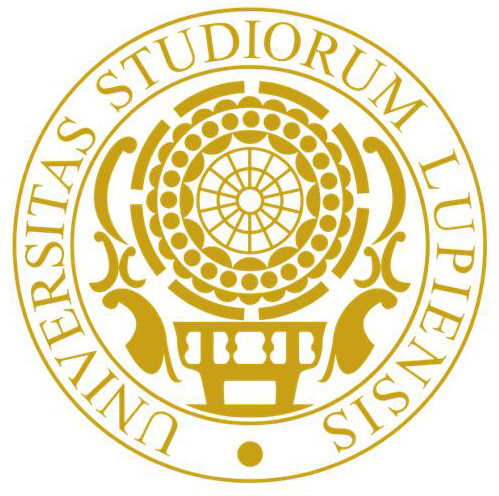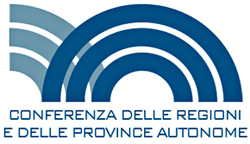PARTICIPATORY ARCHIVE OF FOLK CULTURE
Premise
Since its inception the Italian Network of Folk Culture (INFC), present and active today in most of the Italian territory and composed of public and private stakeholders (local authorities, cultural institutions, voluntary and cultural associationsl), works for research and valorization of the local cultures and for development of different models of sociability.
Mark Prensky, American writer and scholar of learning and education processes, in 2001 he invented the digital native term, referring to the debate on the transformation of the educational institutions in the United States. «Our students have changed radically... today they are the first generation that has grown up within this new technological paradigm, have spent their entire lives surrounded by tools that have been created by the digital revolution... The name most effective I coined for them is "digital natives." Our students today are all "native speakers" and speak the digital language of computers, video games and the Internet».
Nowadays traditional culture needs to do not lose any more ground against the advance of technology, to face the emergence of new media languages. In the case of the Italian Network of Folk Culture, it wants to communicate to new generations, to transmit traditional cultures, to continue in the process, typical of folk culture, of involvement of people. It is possible, communicating in a digital and contemporary way, not only using the traditional methods and tools. Transmit a tradition means also betray it, take possession of it, because any traditional culture can live only if it can interact with people without losing its original poetic.
What is the Participatory Archive of Italian Network of Folk Culture
The development of the web platform of the Italian Network of Folk Culture, active since 2011, until today has provided the creation and management of a web community, the development of a web radio (www.tradiradio.org) and the creation of a Participatory Archive. This last section of the project will allow members to upload their documents on traditional culture: interviews with the masters of folk culture, videos, music, texts, photographs about festivals and traditions, traditional games and ways of working, research about food and crafts and everything that could be shared by researchers, artists, students and common people. Thanks to an interface for mobile devices, you can easily and directly upload the archive documents: you simply have to download on your device the icon of the network which it will connect you directly to the archive. Only one-click to upload photos, videos and researches.
Into the archive will converge all the materials collected in the course of the activities of the Network during past years. Such as Tullio De Mauro who is being donating his collection to Italian Network of Folk Culture and thanks to all the owners and book collectors who are doing the same, on the archive will also be available some of the greatest book collections of Italian scholars and characters of folk culture. It is possible with the development of a system connection to the others existing on line archives of Italian Network of Folk Cultures. Many others are following the example of De Mauro: schools, associations, researchers and the supporters.
The project provides the opening of others twin platforms in other countries and territories, which will be developed following the example of the Italian archive. Among the first entities, with which the project is already under construction, we note the Generalitat de Catalunya, which will upload more than 10,000 documents about festivals and rituals.
In collaboration with the Ministry of Public Education regional departments, the project is developing training courses in the first and second level schools of Italy regarding rituals and festivities of their own territories. It aims at increase the attention and participation of new generations in the community to which they belong. An example is the work made in the Province of Grosseto by the students of High School A. Rosmini, which has led to the development of a research and the creation of a video documentary, designed and produced by the same students, titled "Santa Caterina. A fire that never dies. A high school point of view on a folk tradition" dedicated to the ritual of Focarazza of St. Catherine in Roccalbegna. These materials will be loaded in the Archives on line by the same schools and institutes.
Tullio De Mauro Fund in the Italian Network of Folk Culture Archive
The fund comes from a private collection formed during many decades and donated to the Network, by an official act of 2011, by Tullio De Mauro and his wife Silvana Ferreri. It is a few thousand books, pamphlets and documents of "gray literature" relating to two different areas: the Italian dialects one and minority languages one.
Italian dialects section contains dialect dictionaries, literary works by the major and most well-known authors (Ruzante, Belli, Porta, De Filippo, Firpo, Noventa, Buttitta, Guerra), texts lesser known or known only locally, collections of nursery rhymes, proverbs, tales and fairy tales in different dialects.
Minority languages section contains dictionaries, literary texts, collections of short stories, fables, proverbs, archival materials (Gaetano Arfè documents relating to its activities in Italian Parliament on the Charter of the linguistic minorities rights; Piero Ardizzone's documents related to Italian laws on minorities; etc).
Catalogs and digitized texts gradually will be accessible on line, paying attention to the copyright owners's rights. The Fund is open for further donations, both by Professor De Mauro, and by other donors.
Funds on the Popural Network
Participating to the Archives with a Fund means use the platform as a technical tool,(a server space, tag keywords, complete additional informations for each item in the database, geocoding addresses and automatic location for each item with the possibility of creating an interactive maps, integrated search engine, automatic coding of multimedia content to create a standard compatible with most devices, mobile version interacting with the website) aimed at the sharing of all materials, text, audio and video already cataloged and digitized .
Documents, even if uploaded on the Italian Network of Folk Culture Archive, remain property of the owners who are responsible of copyrights.
Click here to enter in the Participatory Archive Italian version
Arianna Euro Mediterranean Network
The Arianna Euro Mediterranean Network is a project aimed at territories that recognize the cultural exchange between the shores of the Mediterranean as a common good. The project activities are oriented to the mapping of cultural resources, particularly the intangible ones present in every single territory for the purpose of their protection and their innovative new interpretation, highlighting their peculiarity and trying to activate on them a positive economic impact.
The formalization of the Memorandum of Understanding (MoU) took place in Sassari (Sardinia) in June 2012 and it was attended, in addition to Municipalities, Provinces and Italian Regions, by various institutional and cultural representations of Morocco, Catalunya and Greece. After that was made the 1st Itinerant Festival of Mediterranean: the primary collective expression of the Euro Mediterranean network.
Since June 2013 there is an ongoing collaboration with the Fondazione CRT, which, through the Master dei Talenti Graduates programme, offers a grant to follow the development and organization of the Euro Mediterranean Network activities, directly from the headquarters of the partners. In this regard, there is a blog in which are collected the testimonies of boys and girls who are working on the project, visiting places, knowing traditions, organizing festivals, translating the stories and doing interviews... one more way to tell the Euro Mediterranean Network.
Why Arianna (Ariadne)?
Arianna, also known as the "lady of the labyrinth," is the purest. A woman who gets a chance to save her lover, Theseus, trapped in a labyrinth. With the help offered to him by Arianna's thread, Theseus will be able to find the way back and to save himself from Minotaur.
Arianna is therefore the one who saves from maze. But what is a labyrinth? We take the licence to use the words of an Italian philosopher Giorgio Colli, which defines the labyrinth as "a multiform network with infinite centers of radiation". In this sense, our network is equally multiform and the different Mediterranean countries that are part of the network constitute the irradiation centers that carry out activities in support of their cultures. What would happen if Arianna offered us a thread? Connecting the Mediterranean territories we could express a greater force than the one of each individual country. Then the thread would give meaning and coherence to the individual efforts. This is why we resort to the myth of Arianna, so that through the network and through its thread, the whole will be better than the sum of its parts.
How to join in the Network
HOW TO JOIN THE
ITALIAN NETWORK OF FOLK CULTURE
JOINING AS AN INDIVIDUAL
Who it is for: individuals or representatives of an association, recognized or not, of a private nature.
How to join: JOIN HERE the Italian Network of Folk Culture.
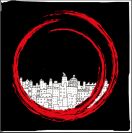
JOINING IN SPIRIT
Who it is for: public bodies
How to join: PUT ON THE WEB HERE the cultural heritage’s witness of your own area.
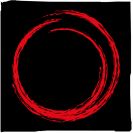
SUPPORTING MEMBERSHIP
The members of the Italian Network of Folk Culture support the association with a contribution that determines the development of the activities in the area.
Who it is for: public or private bodies and associations.
How to become a member: contact us to info@reteitalianaculturapopolare.org
All personal data are processed according to the Legislative Decree June, 30 2003, n. 196 "Code concerning the protection of personal data", which you can download HERE
TradiRadio. TRAdition and beTRAyal
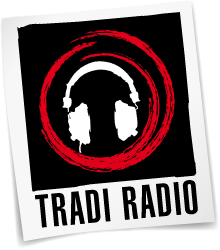 TradiRadio. TRAdition and beTRAyal
TradiRadio. TRAdition and beTRAyal
Tradi Radio is the web radio of Italian Network of Folk Culture. The web platform is not only an instrument by means of which inform and be informed about what is happening in the territories of the network, but also a virtual space open to ideas of those who want to network and share knowledge.
The site, the community, the Participatory Archive... The challenge does not end there. We want to enrich the platform with a web radio which can be heard worldwide. There are many people who want to listen to different types of music and other culture stories, and we think the best way to protect and promote culture will be sharing these subjects.
The web radio of the Italian Network of Folk Culture was founded with the goal of creating a space dedicated to the story of rituals, traditions, places and alternative social models.
The editorial staff is composed of volunteers enrolled in the network, scholars, journalists and all those persons who are in touch with the network.
The web radio project provides a daily scheduled programmes, but it is also made alive by the proposals of the members who can contribute in a variety of ways: by telling their own projects, territories and experiences they know better or through developing special musical playlists.
Contacts
Rete Italiana di Cultura Popolare
Headquarter: Via del Carmine, 14 - 10122 Torino - Polo del '900 - Italy
National headquarter: Via Piave, 15 - 10122 Torino - Italy
Tel.+39 3883275068
+39 3935766183
em@il: info@reteitalianaculturapopolare.org
certificate em@il : postmaster@pec.reteitalianaculturapopolare.org
Join the Network
THE PROJECTS YOU CAN JOIN
I SUPPORT FOLK CULTURE
 Membership required
Membership requiredThere are lot of people who want to listen to more music, hear new words and cultures. Perhaps, one of the best ways to protect these expressions and promote them is simply sharing them with others. The web radio of the Italian Network of Folk Culture (Non-profit organization) was founded with the goal of creating a space for the story of rituals, traditions, places and the patterns of sociability/community in which they develop.
Me mbership required
mbership required
This section of the community will allow members to upload and download videos, texts, photographs, music, interviews with the "masters" of folk culture, documents on festivals and traditions, food and craft, games and ways of working, research, and pieces of musical studies. The archive will consist of all materials loaded by members and of some private cultural materials donated to the Italian Network of Folk Culture, then loaded and become available for everyone. The first to begin building this archive was Tullio De Mauro, linguist and professor emeritus of international renown, who donated to the Net part of his archive of linguistics.

Reserved for municipalities that have joined the Network in spirit – WRITE TO segreteria@reteitalianaculturapopolare.org TO NOMINATE YOUR AREA

Reserved for municipalities that have joined the Network in Spirit – WRITE TO segreteria@reteitalianaculturapopolare.org TO NOMINATE YOUR AREA
The University has the objective of promoting meetings, workshops and performances to raise awareness and spread out the best practices of folk culture. Real lessons about tradition, held by those who are its "masters": expressions of a territory and a community, a social and economic history. For these figures, this is a way to communicate with future generations, in order to ferry the tradition to forms of innovation, constituting an inter-generational cultural covenant and a shared path.
 Open to all – NOMINATE A FOLK CULTURE MASTER OF YOUR AREA HERE
Open to all – NOMINATE A FOLK CULTURE MASTER OF YOUR AREA HEREThis is an international reward based on the supervision of a scientific committee. It is aimed to the development of festivals, rituals, performances and actions that express the intrinsic and inseparable value of each area's history.
THE NETWORK
With the sponsorship of:
| |
| |
Provincia dell'Aquila
|
|
Provincia di
Rieti
|
|
Regione
Molise
|
| |
Provincia di
Cosenza
|
|
Provincia di
Roma
|
|
Città di
Torino
|
| |
Provincia di
Benevento
|
|
Provincia di
Sassari
|
|
Teatro delle Forme
|
|
|
Provincia di
Firenze
|
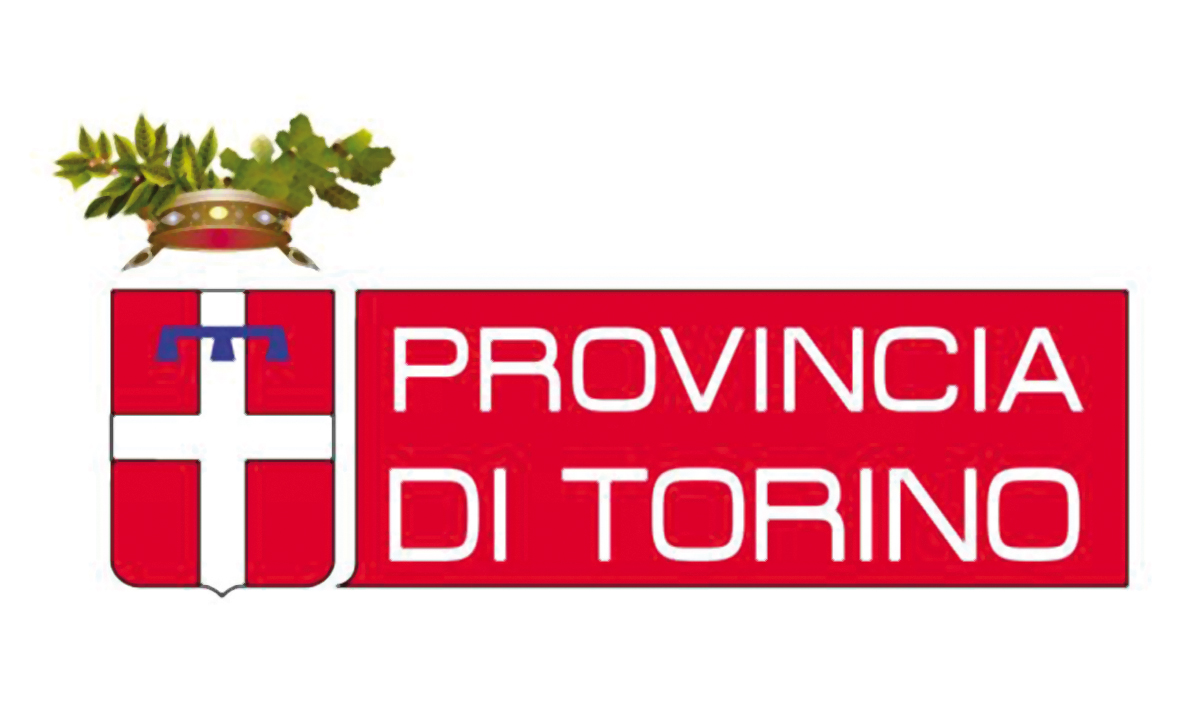 |
Provincia di
Torino
|
|
AICS
|
|
|
Provincia di
Grosseto
|
Regione
Piemonte
|
|
|
|
Cultural Heritages:
|
|||||
| |
Comune di Apricena
|
|
Comune di Jelsi
|
|
Comune di
Orsara di Puglia
|
|
Comune di Biccari
|
|
Comune di Laino Borgo
|
|
Comune di
Piobesi Torinese
|
|
|
|
Comune di Candelo
|
|
Comune di Maglione
|
|
Comune di
Vastogirardi
|
|
Comune di
Canelli
|
|
Comune di
Mergozzo
|
|
Comune di
Novoli
|
|
|
|
Comune di
Castelnuovo
Don Bosco
|
|
Comune di
Moncalieri
|
|
Comune di Sedini
|
|
|
Comune di
Chiauci
|
|
Comune di
Noli
|
|
Comune di Taggia |
|
|
Comune di
Civitacampomarano
|
|
Comune di
Nomaglio
|
|
Comune di Tufara
|
|
Comune di
Altavilla Silentina
|
|
Comune di Alfedena
|
|
Comune di Nola
|
|
|
Comune di
Rocchetta a Volturno
|
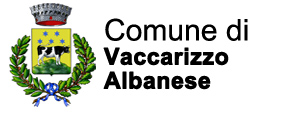 |
Comune di Vaccarizzo Albanese
|
|
Comune di San Marco La Catola
|
|
|
Comune di Roccalbegna
|
|
Comune di Motteggiana
|
|
Comune di Sordevolo
|
|
|
Comune di
Valdieri
|
|||||
With the patronage of:
 English
English  Italiano
Italiano  French
French  Spanish
Spanish  Arabic
Arabic 